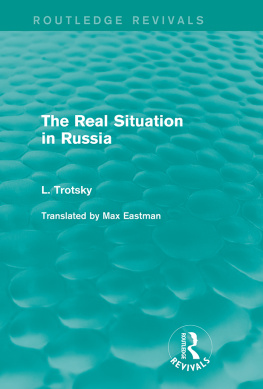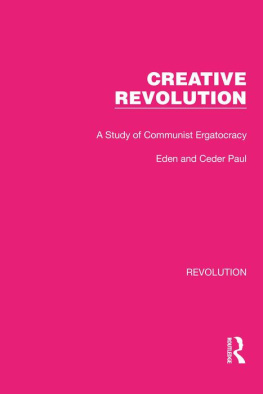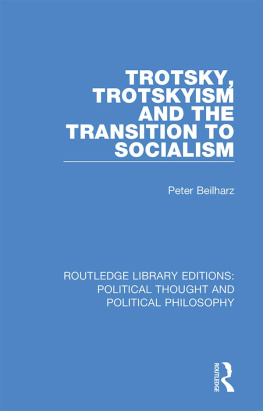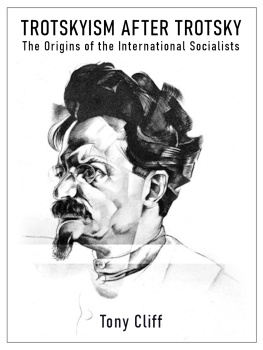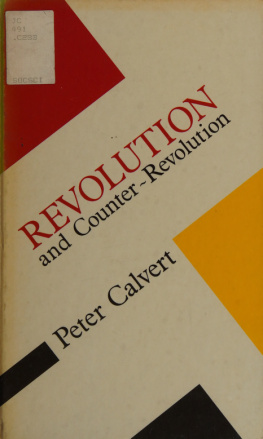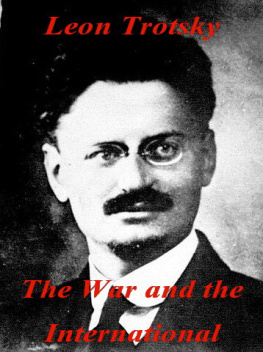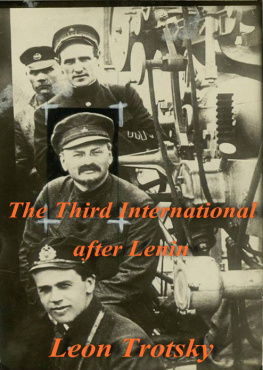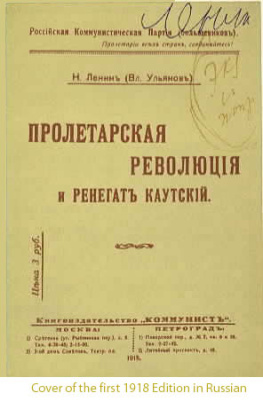Introductory.
A great leader died. On December 1, 1934, Sergei Kirov, a member of the Political Bureau of the Communist Party of the Soviet Union, was waylaid in Leningrad and shot dead. On December 21 the Soviet Government announced that the assassin, Nikolaiev, was a member of the so-called Leningrad Center of counter-revolutionists, a terrorist group bent on assassinating the highest officials of the Soviet.
Said the official communique:
The investigation has established that the motive for the killing of Kirov was a plan of this underground anti-Soviet group to disorganize the leadership of the Soviet Government by means of terrorist acts directed against its chief leaders and thereby effect a change in policy along the lines of the so-called Zinoviev-Trotsky platform.... There was an additional motive for the killing of Kirov because Kirov had smashed the Leningrad group of former Zinoviev oppositionists both ideologically and politically.
A few days later, Zinoviev, Kamenev and 17 members of another counter-revolutionary group, the so-called Moscow Center, were arrested and brought to trial. At the hearings, Zinoviev, apparently realizing the hopelessness of his situation, declared:
This outrageous murder threw such an ominous light upon the whole previous anti-Party struggle, that I recognize the Party is absolutely right in speaking of the political responsibility of the former anti-Party Zinoviev group for the murder committed.
Members of the Moscow Center, in their confessions, explained the nature of the degeneration that led to the murder. Said Yevdokimov:
We were separated from the actual life of the country and we stewed in our own juice. Our counter-revolutionary connections were strengthened in us. Blinded by the wrath towards the leadership of the Party, we did not see what was occurring in the towns and villages. We did not see the colossal successes of Socialist construction. The tremendous historical processes of our country, influencing the international working-class movement, went by us. We appraised the difficulties arising in the process of growth in the countries as enemies, maliciously rejoicing at failures, and accusing the Party leadership of these failures.
We did not see what every rank-and-file member saw. We did not notice the growth in the consciousness of strength, of the unity of the Party. We addressed Stalin with malicious counterrevolutionary insinuations. We accused the Party leadership that it did not accept measures to activize the international working-class movement. We slanderously asserted that the Central Committee handicapped the development of this movement.
Another member of the group, Bashkirov, declared: Nikolaievs shot resulted from the fact that he received his education in counter-revolution in the Trotsky-Zinoviev organization.
Once more the name of Trotsky cropped up in connection with an attack on the Bolshevik Revolution. Once more Zinoviev (and his old associate, Kamenev) appeared as collaborating with Trotsky. This time it was no mere word barrage. A great hero was destroyed. New Russia was robbed of a talented, courageous and universally beloved working-class builder of the Socialist system. The blow was aimed at the very heart of the Revolution.
The dregs of the Trotsky-Zinoviev opposition.... This is how the Soviet masses termed the band of plotters. And once more a gigantic surge of hatred rose among the millions of friends of the Soviet Union the world over for this man, Trotsky.
Who is he? What is Trotskyism? What are its social roots? What is the international role of the Trotsky group?
The following is to be a brief answer to these questions:
1. Trotskys Career.
Trotsky calls himself the true Bolshevik-Leninist. So did the Social-Democratic hangmen of the German revolution, Noske, Scheidemann, Severing, call themselves true Marxists. Trotsky loves to pose as the last of the great revolutionary figures that carries forward the tradition of Lenin. There are people, especially among the younger generation, who think of him as an old Bolshevik. For wasnt he leader of the Revolution in 1917? Wasnt he at the head of the Red Army between 1918 and 1921?
These are the facts:
Trotsky started his political career around the turn of the century. In 1903, when the great division between the Mensheviks and the Bolsheviks took definite form, Trotsky allied himself with the Mensheviks. In one way or another he fought Bolshevism until late in the summer of 1917. Time and again he agreed with this or that point of the Bolshevik program, but soon he would join the Mensheviks to fight the Bolsheviksand Lenin. He renewed his open hostility to Bolshevism in 1923 and has been fighting it ever since.
How did he become a revolutionary figure? He never was in the thick of the workers life as builder of their organizations. He never succeeded in winning to his particular side any considerable numbers of workers. He always was, and always remained, a writer and speaker only, enjoying great popularity among the petty-bourgeois intellectuals. When the revolutionary labor movement in Russia was young, a man with a sharp pen and an oratorical talent such as Trotsky could easily become noted. It is for these qualities that he became a member of the First Soviet of Workers Deputies organized during the Revolution in 1905. The Soviet of that time, according to Lenin, was a broad fighting union of Socialists and revolutionary democratslacking definite form. The first chairman of the Soviet, Chrustalev-Nosar, was not even a Socialist. After the latters arrest Trotsky became chairman. Of his role during those crucial days of the 1905 Revolution we have the testimony of a great scholar, the historian Pokrovsky:
During the whole period of its activity, the Petersburg Soviet had at its head a very intelligent and clever Menshevik, an adept in the art of combining Menshevik substance with revolutionary phrases. The name of that Menshevik was Trotsky. He was a genuine, full-blown Menshevik who had no desire whatever for armed insurrection and was altogether averse to bringing the revolution to its completion, i.e., to the overthrow of Tsarism. (M. N. Pokrovsky, Brief History of Russia, Vol. II, p. 320).
After 1906 he forms a little center in Vienna, Austria, where he publishes a non-periodical paper of his own. In this paper he fights Bolshevism, although in varying degrees. In 1912 he joins an anti-Bolshevist coalition known as the August Bloc. His attacks on Bolshevism become more vehement and unscrupulous. With the outbreak of the World War he occupies a Centrist position. In words he opposes the Social-Democrats who joined their capitalist governments to help one group of imperialist robbers, as Lenin called them, against the other. In fact he does not break with them and in his arguments he often defends them. He is against the war, but he is also against Lenin. The Leninist program called for work to defeat our own government during the war; it called for transformingin each countrythe imperialist war into civil war, i.e., a revolution against the bourgeoisie; it called for the formation of a new international organization of all really revolutionary Socialists. Trotsky is against these slogans. When Lenin says: it is good for the revolution that our own government should be defeated in war, Trotsky calls this a concession to the political methods of social-patriotism. When the revolutionary Socialists gathered in 1915 in Zimmerwald, Switzerland, to organize for the struggle against the imperialist war, Trotsky belonged, not to the Leninist left wing, but to the center.
So much were his ideas at variance with those of Lenin that even after the February revolution of 1917, Lenin did not consider Trotsky a Bolshevik. In a letter to Kollontai, dated March 17, 1917, Lenin writes:


